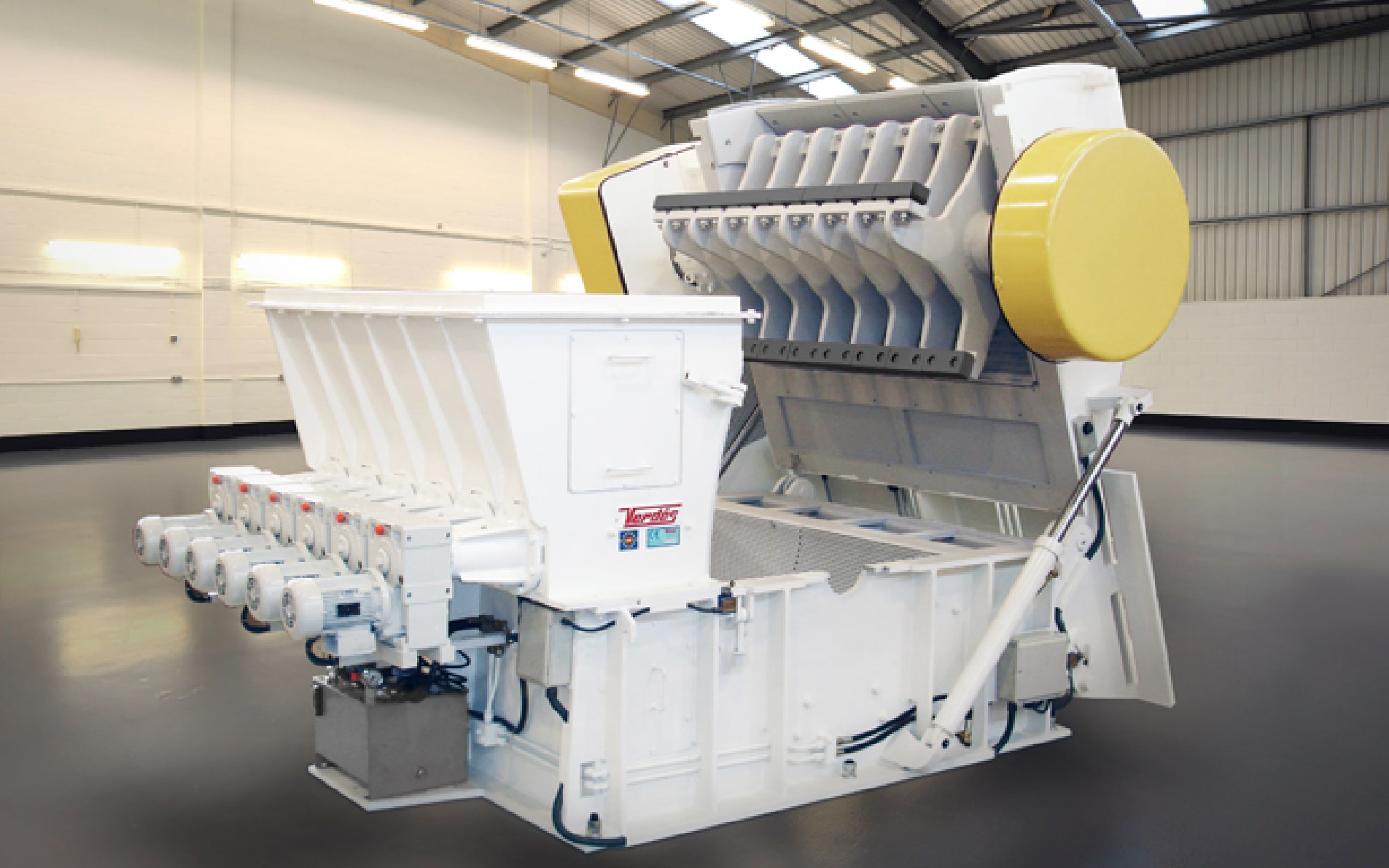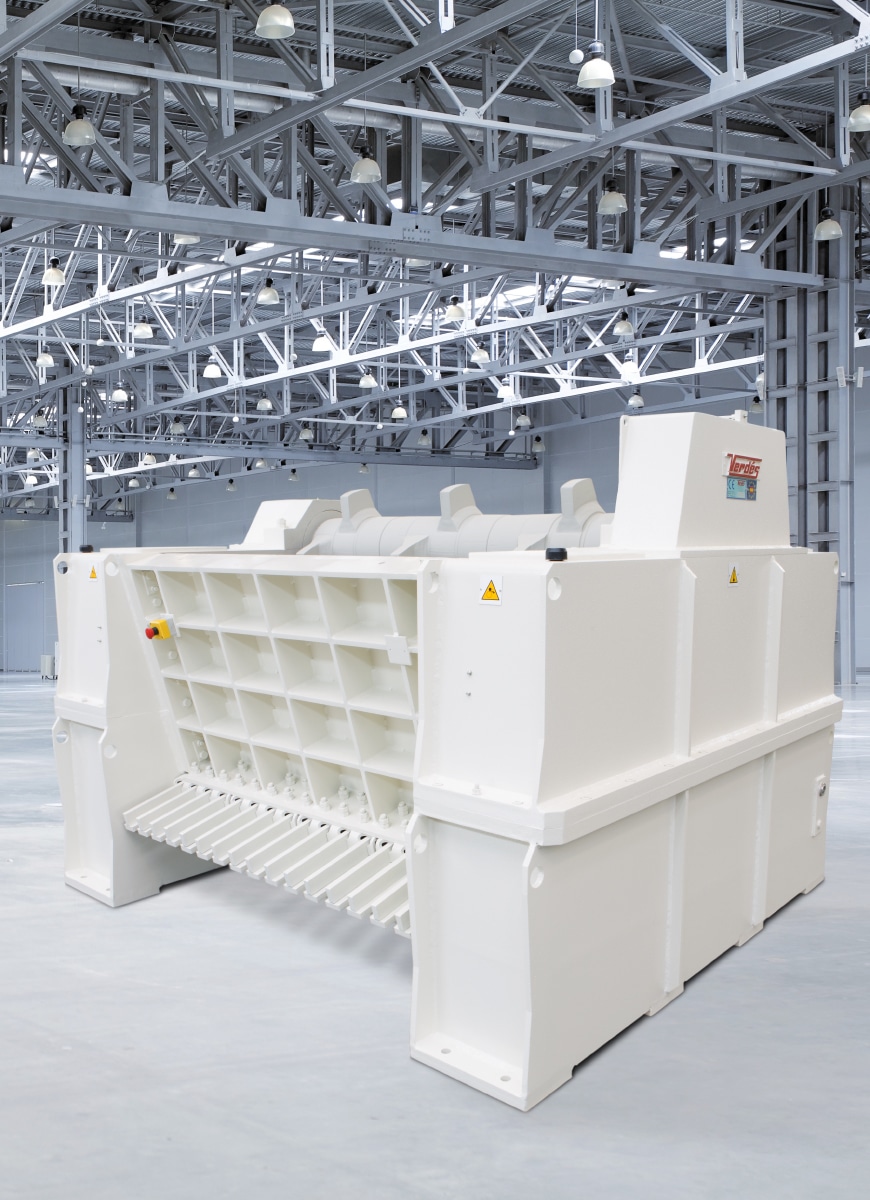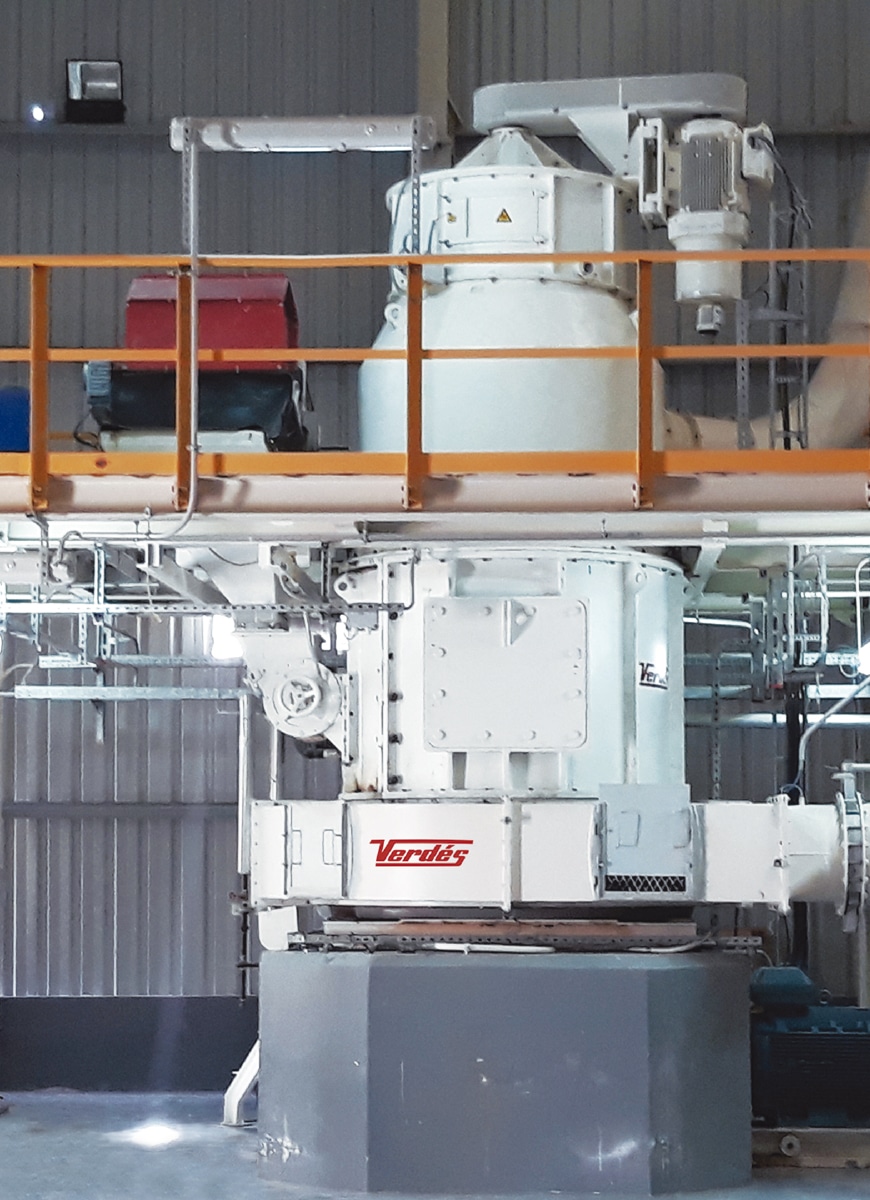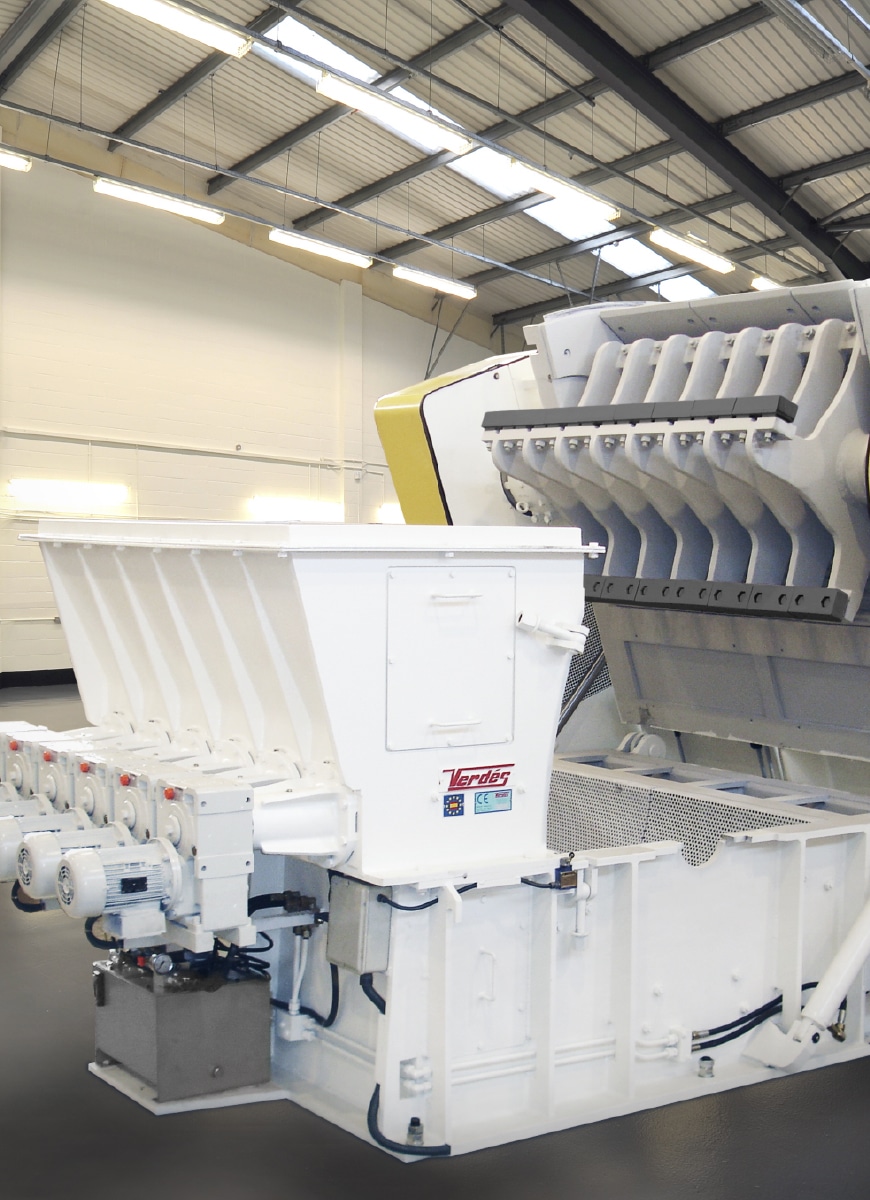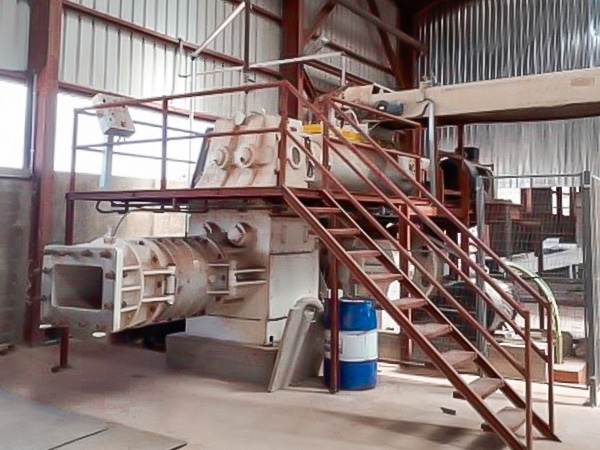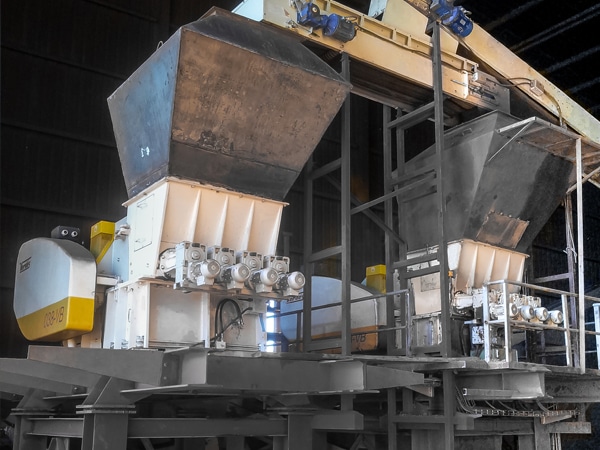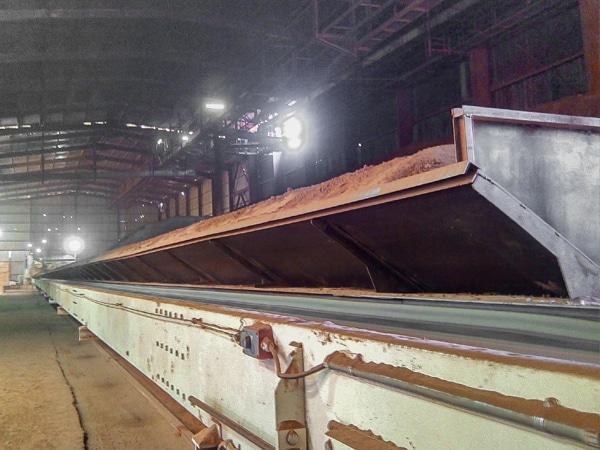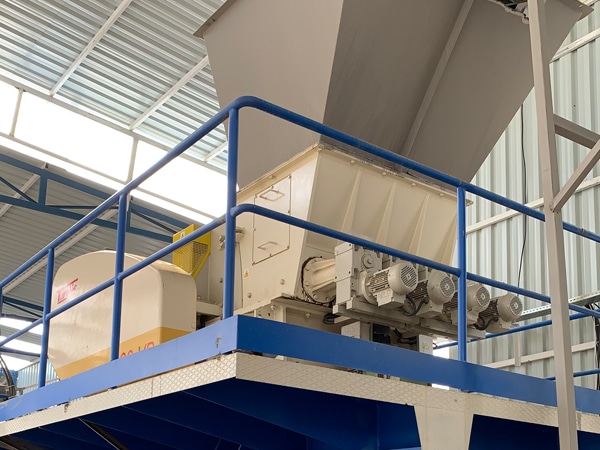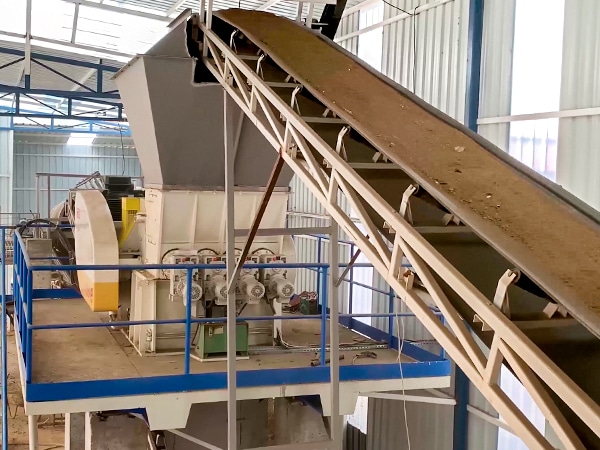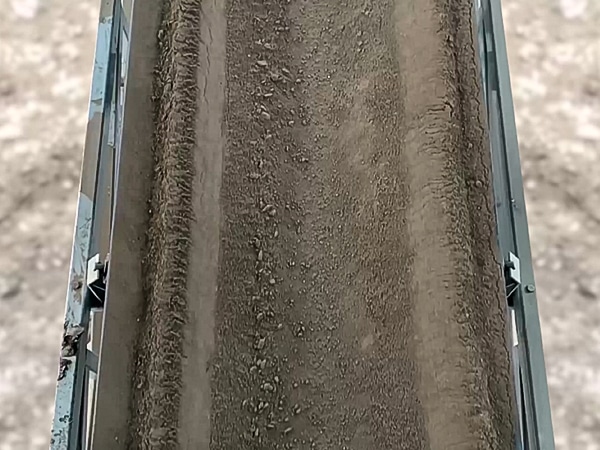
This via will always be more effective with dry, hard clays than with wet, soft clays, which absorb part of the energy of the impact due to plasticity, thereby reducing the effectiveness of the process, making it unfeasible.
Therefore, it is advisable to use dry processing:
– For clays with a moisture content under 12% which may vary according to plasticity.
– For clays with high limestone content, in order to minimise the presence of “lime blows” in the finished pieces.
– When you want to produce a quality ceramic product, such as floor tile, stoneware, roof tile, face brick, etc.
Case Studies
Need:
As a result of the growing demand that the local market was experiencing at that time, a customer from Algeria required doubling the production of its Verdés dry preparation line (with Hammer Mill 038-VB). The level of quality of its products was in the high range of the market, thanks to the fine grinding provided by our Verdés hammer mill, so the Client wanted to maintain that quality standard and at the same time increasing the production rate.
Solution and Results:
To meet the Client’s need, Verdés installed an identical line to the first one along with a storage room equipped with a Verdés Reclaimer, that allows managing a large volume of storage material. The supply included a new hammer mill 038-VB, working in parallel on the same platform than the already installed one. As a result, the client went from 140,000 T/year of fired product to 280,000 T/year without affecting the production of the first line, and with a final ceramic product with high aesthetic and structural quality.
Need:
A Turkish client needed to reduce the number of milling machines in their clay preparation line in order to lower operating costs. At the same time, they wanted to obtain a very fine granulometry, essential for producing high-quality, added-value roof tiles.
Solution and Results:
The solution for this client was to install a Verdés 038-VB hammer mill, which allowed them to replace various existing and inefficient milling machines while obtaining the desired granulometry. The hammer mill is currently operating with a very fine output granulometry -approximately 91% of material is less than 1 mm- and the client has achieved the desired final product quality.


